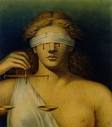by Clare Langley-Hawthorne
http://www.clarelangleyhawthorne.com/
One of the reasons many of us enjoy crime fiction is the satisfaction of seeing  something so rarely provided us in our real lives – justice. As a crime writer I feel it is my duty to play fair with the reader but that doesn’t always mean that at the end of my books the perpetrators get their ‘comeuppance’.
something so rarely provided us in our real lives – justice. As a crime writer I feel it is my duty to play fair with the reader but that doesn’t always mean that at the end of my books the perpetrators get their ‘comeuppance’.
At the end of The Serpent and The Scorpion for instance (and I’ll try to avoid spoilers here) I felt that if I was to remain true to the politics of the time I could have no other ending but, nevertheless, the injustice of the slippery Machiavellian world of the British Empire galled me.
As a reader I have no problem with these sort of endings – where justice is impossible in the circumstances – it may be frustrating but I’m okay with it so longs as it rings true. What ruins a good crime novel for me, however, is the feeling of being cheated at the end – that the writer has not played fair and that the resolution provided is a let down. On TKZ we blog a lot about the craft of writing a mystery and I think as a writer in this genre I owe it to my readers to grapple with the concept of justice in each of my books – be it in terms of retribution, punishment or some other form of satisfaction. Although we want the perpetrator to get what he or she deserve I think there’s more to it that that – I think many of want to feel as though ‘right’ has been done.
So what are the parameters for ‘justice’ that I use to help guide me when I am crafting my novels?
- I like to consider that the effort taken in solving the mystery is commensurate with the resolution (no sudden appearances at the end of a vital clue that negates all the protagonist has done).
- I want the final conflict to have emotional resonance (no lightning bolt hitting Doctor Evil by mere chance) so the reader feels satisfied.

- I like to place the mystery in an overall societal context so the reader gets to understand just how the system works (or doesn’t work) and what social, political or economic conditions dictate how the perpetrator will be punished (or not) or conversely how the victim is treated. [Okay, okay, so this is just the history nerd in me…]
- I also want to consider what kind of ending makes the most sense and feels the most satisfying to me, both as a reader and a writer. I don’t like endings that feel rushed or abbreviated – or ones that leave too many threads hanging to be satisfying.
- And finally – at the end if justice cannot be done then as a writer/reader I better damn well know why…
So what makes an ending satisfying to you? Do you agree that most fans of crime novels like to see some kind of ‘justice’ done at the end of a book? What kind of endings fail to live up to your expectations?

Completely agree, Clare. The quest for justice in a dark world is the through line of my novels and is what I like to see in thrillers in general. Having that creates a “rooting interest” for the readers. And indeed we have to work hard to render a satisfying ending, no easy task!
*** What kind of endings fail to live up to your expectations? ***
Endings that make me feel like I wasted my time reading the book. A lot of times, it’s because the endings took the easy way instead of actually resolving the issues of the story:
* Killing off the main character. The author evidently couldn’t figure out to resolve the corner she’d painted herself in, so she had the main character commit suicide.
* If the character is seeking an object in the book, have them find it. A best seller I just read spent the entire book chasing after an object, and then at the end, we discovered it had been destroyed. What was the point of the book then?
* Not solving the core issue of the book. This was a mystery set in my home location. The author spent a lot of time with the cop investigating the case, checking out the different suspects, making them each look guilty–and then at the end, we discovered it was a random killing. Thud. I’ve never read another book by this author because I don’t trust her to deliver. Not with an ending like that.
Linda Adams
http://garridon.wordpress.com/
James and Linda, completely agree – it’s hard to get a satisfying ending and as Linda said, when the book ends with a thud it’s very frustrating!
I’m satisfied is justice is attempted; what form of justice it is, or how successful the attempt, is negotiable. Novels where both the protagonist and antagonist are criminals may have a convoluted sense of justice, and it may be imperfectly achieved, but there must be something there or it’s all just nihilism.
In a straight crime story/mystery, the killer doesn’t have to come to justice, but we at least need to find out who it is, and why the crime was done, though a little ambivalence can be well used. Dennis Lehane’s GONE BABY GONE is a great example of solving the crime yet not knowing what justice is.
I like “double” endings that have an ironic sting. For example, at the end of Silence of the Lambs, Hannibal Lecter escapes and says he’s “having an old friend for dinner.” Fabulous ending!